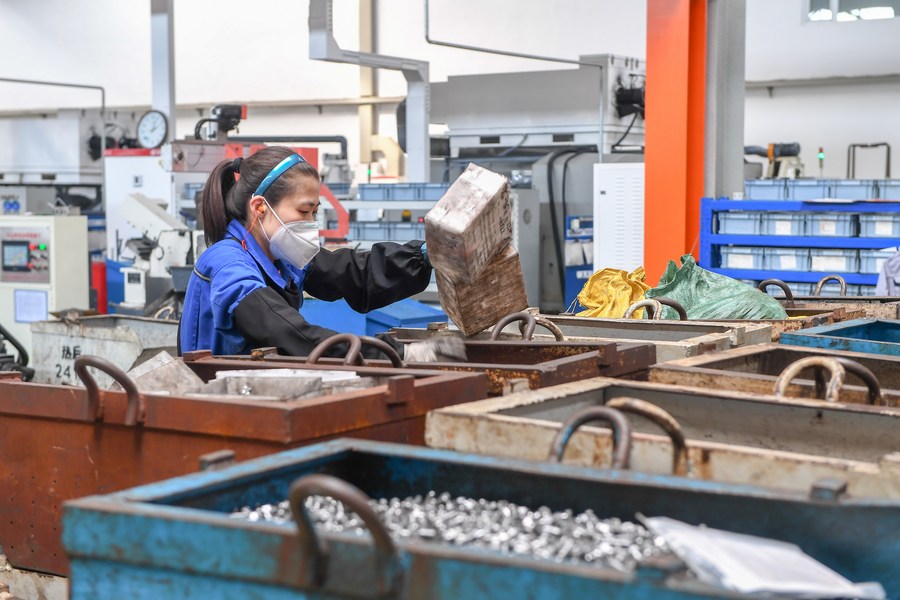By Xinhua writers Liu Yang

A worker works at an auto parts company in Jilin City, northeast China's Jilin Province, April 19, 2022. [Photo by Zhang Nan/Xinhua]
BEIJING, April 23 (Xinhua) -- As the Boao Forum for Asia Annual Conference 2022 wrapped up in south China's Hainan Island on Friday, participants are walking away knowing that China remains a stabilizing force for the world at this precarious moment.
The forum was held against the backdrop of recurring COVID-19 outbreaks, rising geopolitical tensions and higher inflation, all of which have spelled more uncertainties for the global economy.
All eyes were on China, whose economic performance and trade policies have far-reaching influences.
Registering a 4.8-percent gross domestic product (GDP) growth in the first quarter of this year, China's economy is off to a steady start, a feat accomplished despite the daunting challenges of contracting demand, supply chain shocks and a weak forecast.
The healthy economic output, grown out of a series of pro-growth policies rolled out by Beijing, underscores the resilience of China's economy.
Faced with the challenges of the pandemic, China has executed a dynamic zero-COVID approach, balancing the tasks of protecting its population from the virus with keeping its economy on track.
Meanwhile, China has done its best to support the worldwide cause of fighting the pandemic, and actively promoted foreign trade, which have helped stabilize the global supply chain and alleviated inflation, benefiting China's trade partners.
Last year, China's foreign trade exceeded 6 trillion U.S. dollars for the first time, reaching a new height. In the first quarter of this year, China's total imports and exports of goods grew by 10.7 percent year-on-year. The figures highlight the global dividends of China as the "world factory" and "world market," which are especially valuable given the shadow of hyperinflation.
Furthermore, China's actual use of foreign direct investment (FDI) hit a record high when it expanded 14.9 percent year-on-year to 1.15 trillion yuan (around 177 billion dollars) in 2021. In the first quarter of this year, China's actual use of FDI increased by 25.6 percent year-on-year.
Facing unfavorable external factors including the accelerated pace of the U.S. Federal Reserve's tapering and interest rate hikes and the tightening of global liquidity, China has focused on its own economic realities, relied on its large market advantage and strong foreign exchange reserves, pursued a proactive fiscal policy and prudent monetary policy, maintained a reasonable amount of liquidity, and demonstrated its regulatory strength and policy determination.
On April 15, China's central bank said it had decided to lower the reserve requirement ratio for financial institutions by 0.25 percentage point from April 25, enhancing its support for the development of the real economy and for the reduction in comprehensive financing costs.
To offset risks brought about by the Russia-Ukraine conflict, China has insisted on peace, and exerted stability on the global supply chain through public goods such as the Belt and Road Initiative.
All these facts have made it abundantly clear that China is a builder of world peace, a contributor to global development and a defender of international order, and that it has injected and will continue to inject urgently needed certainty into an unpredictable world.

 中文
中文



